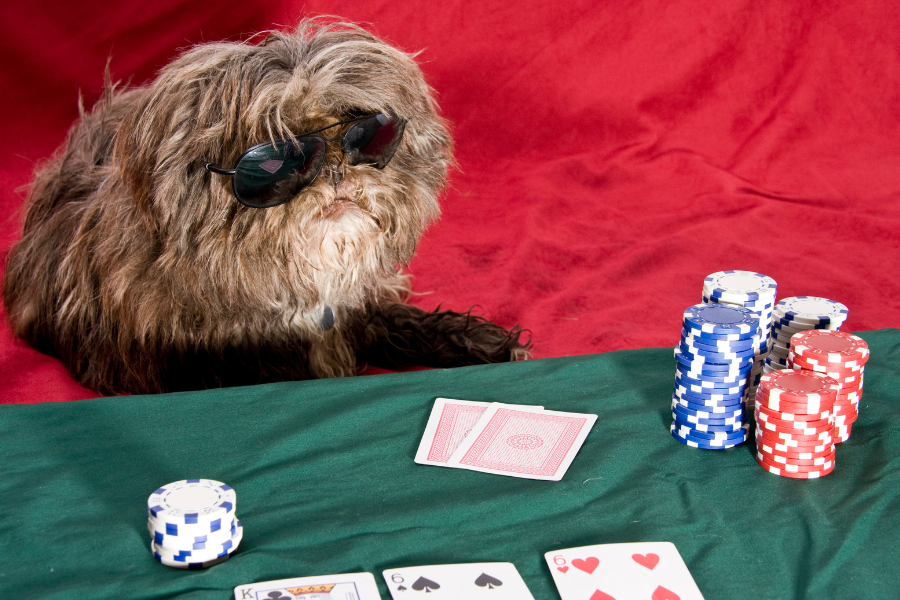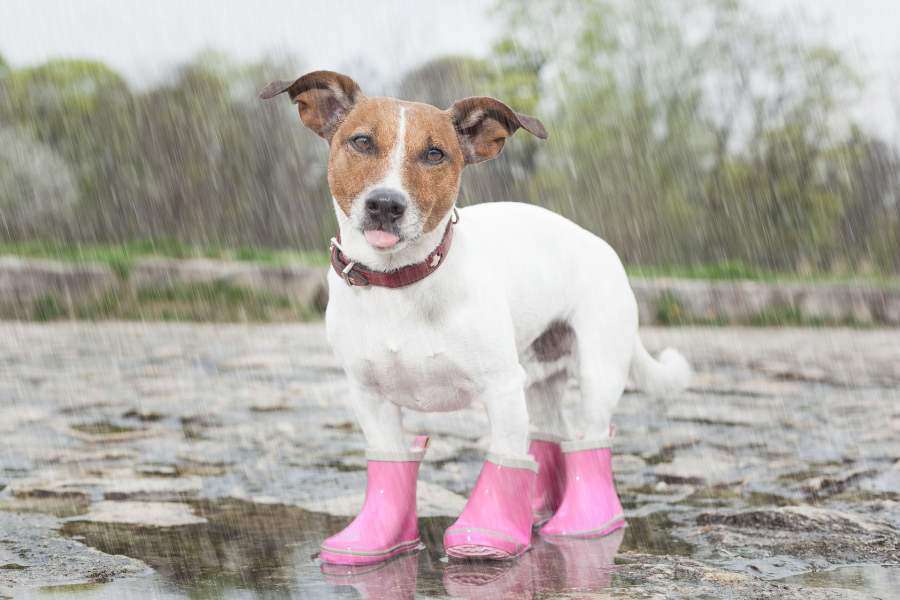
3 ways to prepare for “Non-Animal Loving” Houseguests
- Published on:
- By: ASP Team
It might be surprising to many animal devotees, but not everybody is on-board with the concept of pets in their homes. Some of your closest friends and family members may struggle with allergies, valid phobias, or other common aversions to furry companions. With the holidays approaching, planning to host co-mingled gatherings could get complicated! While having a well-trained animal can help avoid disaster, we highly recommend being prepared to navigate potentially awkward or sensitive situations with Aunt Linda. If you’d like some peace of mind before extending those invites, look no further. Here are 3 ways to prepare for “non-animal loving” houseguests.
1. Animal Allergies
One of the most common reasons people dislike furry creatures is, well, their fur! Some simply find pet hair off-putting, but most people who struggle with it have real, unpleasant, physical reactions. According to the Asthma and Allergy Foundation of America (AAFA), allergies to pets with fur are common in the United States, with as many as 3 in 10 people suffering from allergic reactions to cats and dogs.
So what is it about an animals coat that causes the ever-annoying itching, sneezing, and watery eyes? Good question! The AAFA explains that your immune system plays a large role in the physical response to dander, saliva, dust, or pollen that may collect on the surface of your pet’s fur. People who react strongly to these allergens have “over-sensitive” immune systems. This particular problem is clearly out of your control; however, there are steps you can take to reduce your guest’s susceptibility.
- Though a challenge, keep your animal off of furniture for at least three weeks leading up to your event. If it’s impossible to kick your companion off the couch, try laying down a sheet or towel that can be easily removed and laundered. Also, keep your dog or cat out of any guest bedrooms and clean those areas aggressively well before people arrive.
- If you have many carpeted areas in your home, it’s advisable to vacuum and dust days in advance. It might seem strange, but pet allergens that have settled on surfaces can stir into the air during these household cleaning activities. Once airborne, the particles can float around for quite a while, which increases the risk of inhaling them.
- Also, consider steam cleaning your carpets/upholstery and running a HEPA air purifier. These steps are useful since pet allergens are sticky and can easily attach to walls, furniture, and clothes.
- Get your dog or cat professionally groomed. Though this may not make a huge difference, animals generally shed less directly following a good trim and clean down!
- Lastly, remind your guests about your companion and ask them to be prepared with any medications that they might need (including asthma inhalers, Benadryl, or other forms of doctor or other licensed mental health provider prescribed histamine blockers and decongestants).
Get Your ESA Today
ATTENTION
Due to the new Department of Transportation (DOT) policy, Emotional Support Animals are NO longer allowed to fly in airplane cabins for free. However, Psychiatric Service Dogs are eligible.
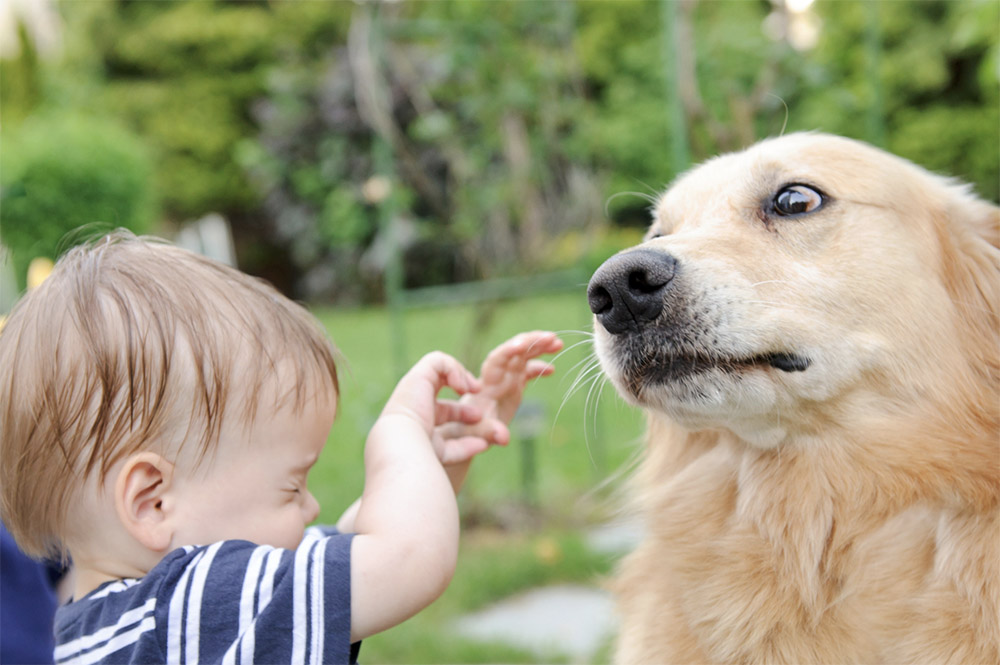
2. Animal Fears and Phobias
For some, pets are as close to kin as the grandkids. For others, they are as unsavory as that strange step-cousin, three times removed. Often, people who identify with the latter have had past negative experiences with animals. Those memories can taint their views and opinions of ALL four-legged creatures. Other times, folks have generalized phobias (possibly stemming from preexisting anxiety disorders), which have little to do with any personal grievances towards your pet. Either way, being sensitive to the concerns of your guests will go a long way. Here are some empathetic strategies that may help take the edge off.
- Using conversational redundancy can work to your advantage. Anytime you talk to averse friends or family, repeatedly tell stories that reinforce what a wonderful pet your Emotional Support Animal is! Even if subconsciously, this practice can help associate positive feelings with your cat or dog that otherwise might not exist. Knowing more specific details about your pet’s breed and personality can also help create a sense of reassurance. It doesn’t hurt to offer insight that will encourage bonding between your guest and animal.
- Asking questions can also go a long way. If people feel seen, heard, and understood, then they are less likely to be defensive or suffer from panic. Before they arrive, attempt to understand your guest’s animal hesitation’s root cause and offer words of cognizance and sympathy for their plight.
- Remember, Emotional Support Animals have a unique ability to perceive the mood of a room. If there is tension or uncertainty, they will most likely catch on. Try to be extra aware of your animal’s whereabouts during the visit. We suggest calmly redirecting or distracting your animal when you sense their curiosity beginning to peak. If your pup starts barking or your kitty shows signs of pending aggression, consider briefly moving them outside (or to another room) until they settle down. The goal is to establish that your Emotional Support Animal is non-threatening and, in contrast, graciously amicable.
- Light some pet-friendly aromatherapy candles to set a tranquil mood. A small thing but it can have a big impact on the psyche! Plus, your house will smell amazing, so that’s a win.
- Lastly, be OK with your guest’s discomfort. You can do and say all the right things, but you might still encounter a lack of acceptance for your pet. That’s OK! People can’t always control their instinctive, deep-set emotions, but if they choose to visit you anyway, we’d say they’ve got your back.
3. Other Common Animal Aversions
We are willing to bet that, as an Emotional Support Animal owner, you love almost everything about your pet. You probably don’t even notice their daily idiosyncrasies because their adoration is all-consuming. The typical sights, sounds, and smells of pet conduct may leave owners unphased, but some people cringe at the mere thought of anything animal. Here are a few tips to help manage potentially “unappreciated” pet behaviors while entertaining guests in your home.
- Excessive licking, jumping up to greet humans, and infringement on personal space are often unfavored activities. We recommend teaching your pet to respond quickly to a basic “down” command. This is most often used with dogs, but cats do not lack obedience intelligence by any means. Felines tend to respond better to visible commands, such as clapping your hands or waving your arm in a downward motion.
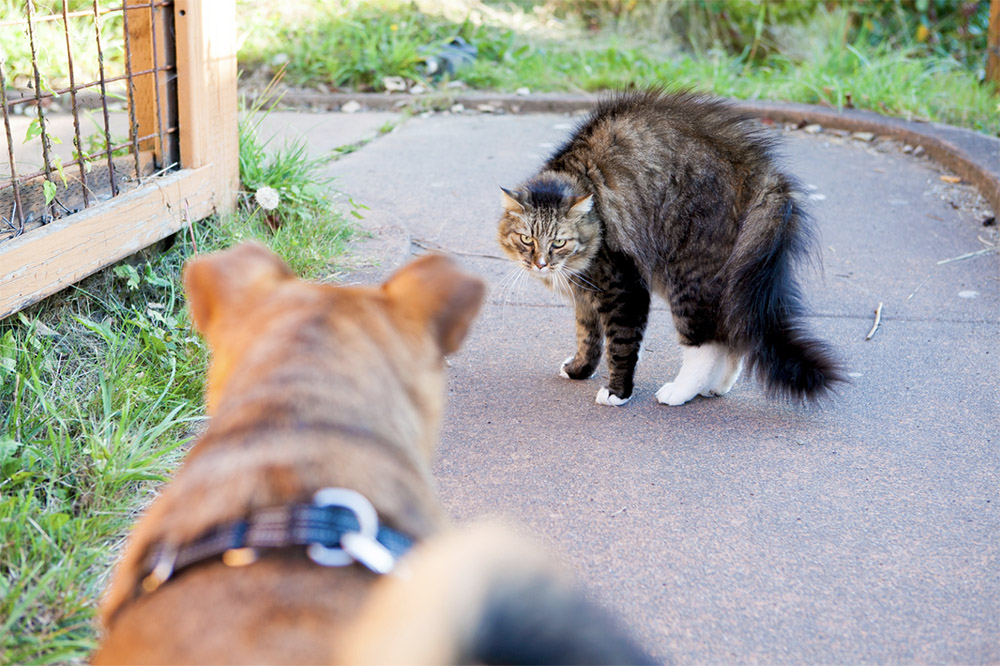
Bonus Tip: Steering guests clear of an animal’s “favorite spot” can also help avoid confusion for your pet. If your dog or cat usually sits on the right side of the couch, make the left side readily available for your company. Nobody needs Jinxie suddenly pouncing on an unsuspecting relative!
- Other habits like begging at the table, climbing on or licking kitchen countertops, and loudly panting or purring can cause some folks to run for the hills! We suggest directing your pets away from food-prep areas (generally speaking) and putting them in another room when it’s time for people to eat. Displaying sanitary practices will help ease the mind of even your most germaphobic friends. During mealtime, separating animals can prevent a loss of appetite, even if panting and purring are unavoidable after dessert.
- There are animal-related smells and sounds to which owners have become unknowingly accustomed. The first things that come to mind are doggy breath and tooty kitty booties! It’s best to avoid switching your dog or cats food before a big gathering as digestive troubles commonly arise with nutrition adjustments. New foods can lead to bad breath, unpleasant bodily functions, and sometimes house accidents (even in solidly potty trained animals). While not your pet’s fault, these issues create a much less hospitable environment.
- In the hustle and bustle of preparation, it’s not always possible to bathe your pet before guests arrive. In this case, other options to lessen pet odors include rug deodorizers and animal-friendly upholstery sprays. If your home doesn’t smell like your pet, people will be less likely to focus on them (or display unmistakable expressions of disgust).
- Lastly, avoid leaving your home for last-minute errands. If you have to, it’s best to ask a family member or close friend to grab forgotten items for you. Why do you ask? Your pet is more likely to become agitated in your absence. A nervous dog can equal a barking dog, and a skittish kitty isn’t very pretty! Stick close by your wonderful Emotional Support Animal when they’re amidst new fellowship.
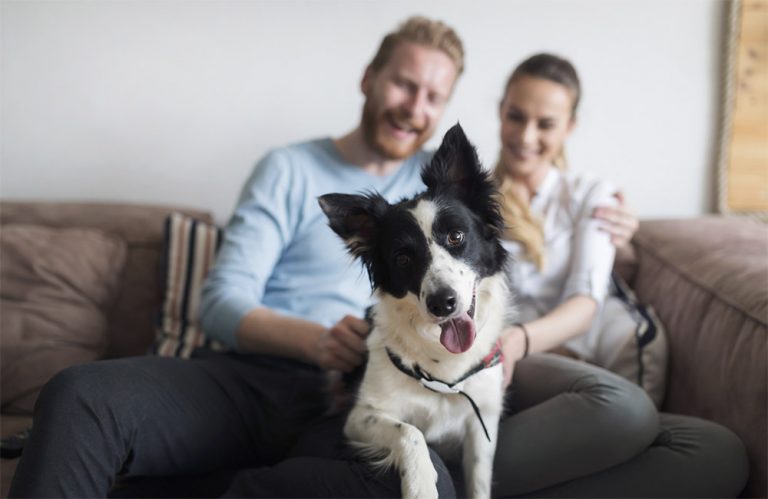
Maybe you haven’t brought an Emotional Support Animal home yet, but are aware of close “non-animal loving” friends and family with allergies or pet aversions. If that’s the case, do some research first. Several dog and cat breeds can help manage the particular challenges we addressed better than others. That said, we also advise not letting the biased opinions of anyone else sway your ultimate choice to get an Emotional Support Animal. Take a moment to fill out our free online quiz to see if you qualify. Putting others first is admirable but taking steps to care for yourself is extremely responsible. Plus, you can always go to someone ELSE’S house for gatherings if they just can’t handle it!

The benefits of an Emotional Support Animal certification and a Psychiatric Service Dog certification are drastically different. Fortunately for you, American Service Pets’ network of active board certified doctor or other licensed mental health providers can help you find the right path to certification. To find out whether you need an ESA or PSD letter, take our easy, three-step Pet Owner Survey!
More Great Resources



